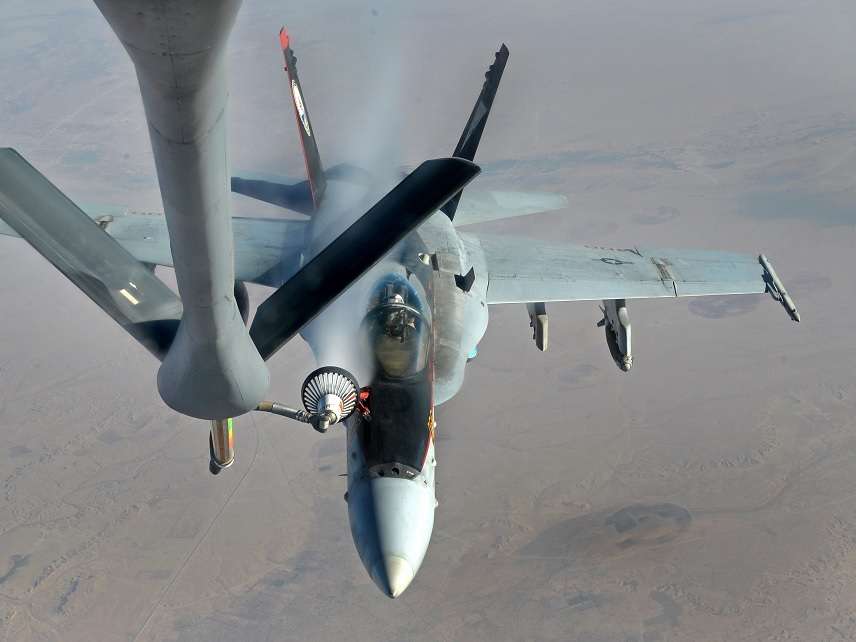Interventionism and Domestic Russia Hysteria Ratchet Up Syria Tensions
The U.S. shoots down a Syrian fighter jet; Russia responds by warning US planes could be considered air targets.

An American warplane "immediately" shot down a Syrian fighter jet that the U.S. military accused of dropping bombs "near" U.S.-backed fighters in a town in the Raqqa province "in accordance with the rules of engagement and in collective self-defense of Coalition partnered forces," read a statement from the U.S. Central Command declares.
The incident was preceded by an attack by pro-government forces on some U.S.-backed rebels nearby, and it was followed by a statement from Russia that it would suspend cooperation with the U.S. over Syria and treat coalition aircraft as potential targets.
This escalation of tensions between the U.S. and Russia illustrates the dangers of wanton military intervention. The U.S.-led coalition in Syria is ostensibly focused on fighting ISIS, a terrorist organization that styles itself a caliphate. Yet the coalition acts independently of Russia, which was invited into Syria by the government, and it acts independently of countries like Iran, which have also been threatened by ISIS but are unwilling to follow the American line.
The U.S.-led coalition has taken a lot of pressure off regional powers, even though ISIS threatens their security and territorial integrity far more than it threatens America. The presence of Western countries in the coalition has also reduced the need for states in the region to try to set aside their differences and cooperate on their own.
America's toxic domestic climate when it comes to Russia has also made the situation in Syria more dangerous. Constant accusations of collusion between Moscow and the Donald Trump campaign have increased the political cost of cooperation with Russia. While Trump campaigned on improving relations with Russia, since assuming the presidency he has largely adopted the sorts of stances that Russia hawk Hillary Clinton might have been expected to take. Meanwhile, much of the mainstream media had an adulatory reaction to Trump's decision to bomb a Syrian airbase earlier this year—a response that taught Trump that "bold" military actions create strong political leaders.
It's hard not to wonder whether this weekend's confrontation was influenced by the president's desire to shake off those accusations of Russia collusion.
According to U.S. Central Command, pro-regime forces drove the rebels out of town. The coalition then "contacted its Russian counterparts by telephone via an established 'de-confliction line' to de-escalate the situation and stop the firing." It was after that, according to U.S. Central Command, that the Syrian plane dropped bombs near rebel forces and was subsequently shot down.
"This strike can be regarded as another act of defiance of international law by the United States," Russian Deputy Foreign Minister Sergei Ryabkov said, according to CNN. "What was it, if not an act of aggression? It was also an act of assistance to those terrorists whom the United States is ostensibly fighting against." Russia's Ministry of Defense now says it will consider any coalition jet west of the Euphrates a potential target.
The Euphrates runs, more or less, through the eastern portion of Syria. About two-thirds of the country—including Aleppo, its largest city, and Damascus, its capital—lie west of the Euphrates. The city of Raqqa, which ISIS claims as its capital, lies just north and east of the river.
The pilot of the Syrian fighter jet was able to eject from the plane, but his fate is presently unknown.


Show Comments (40)